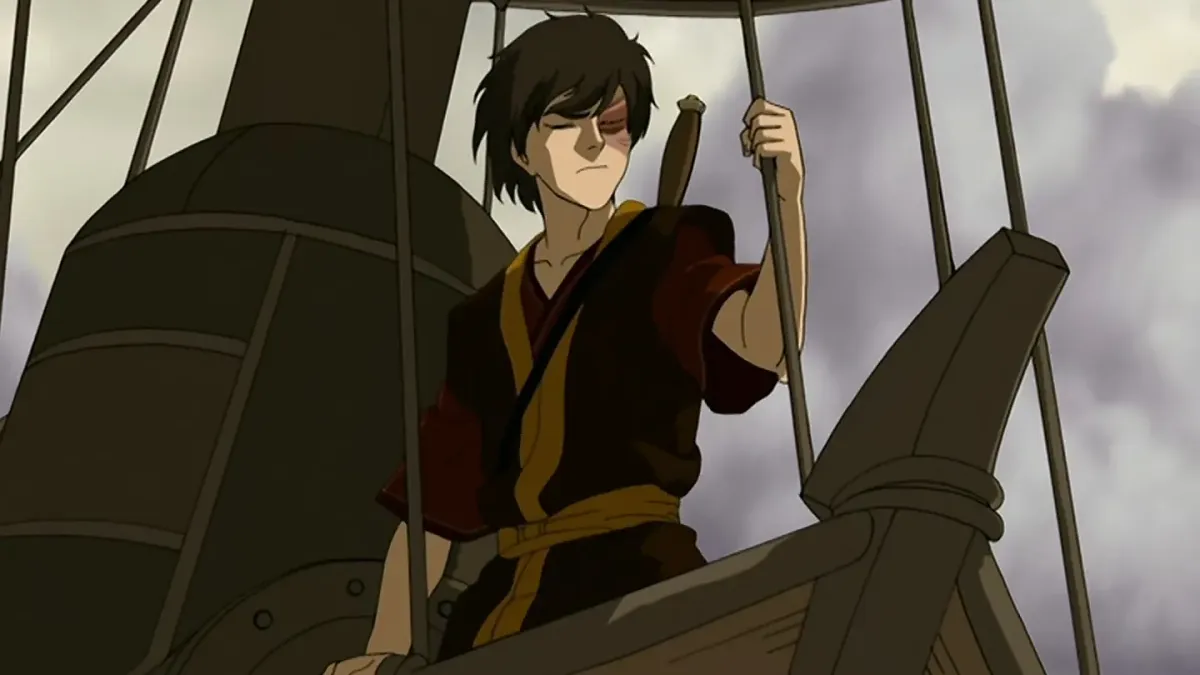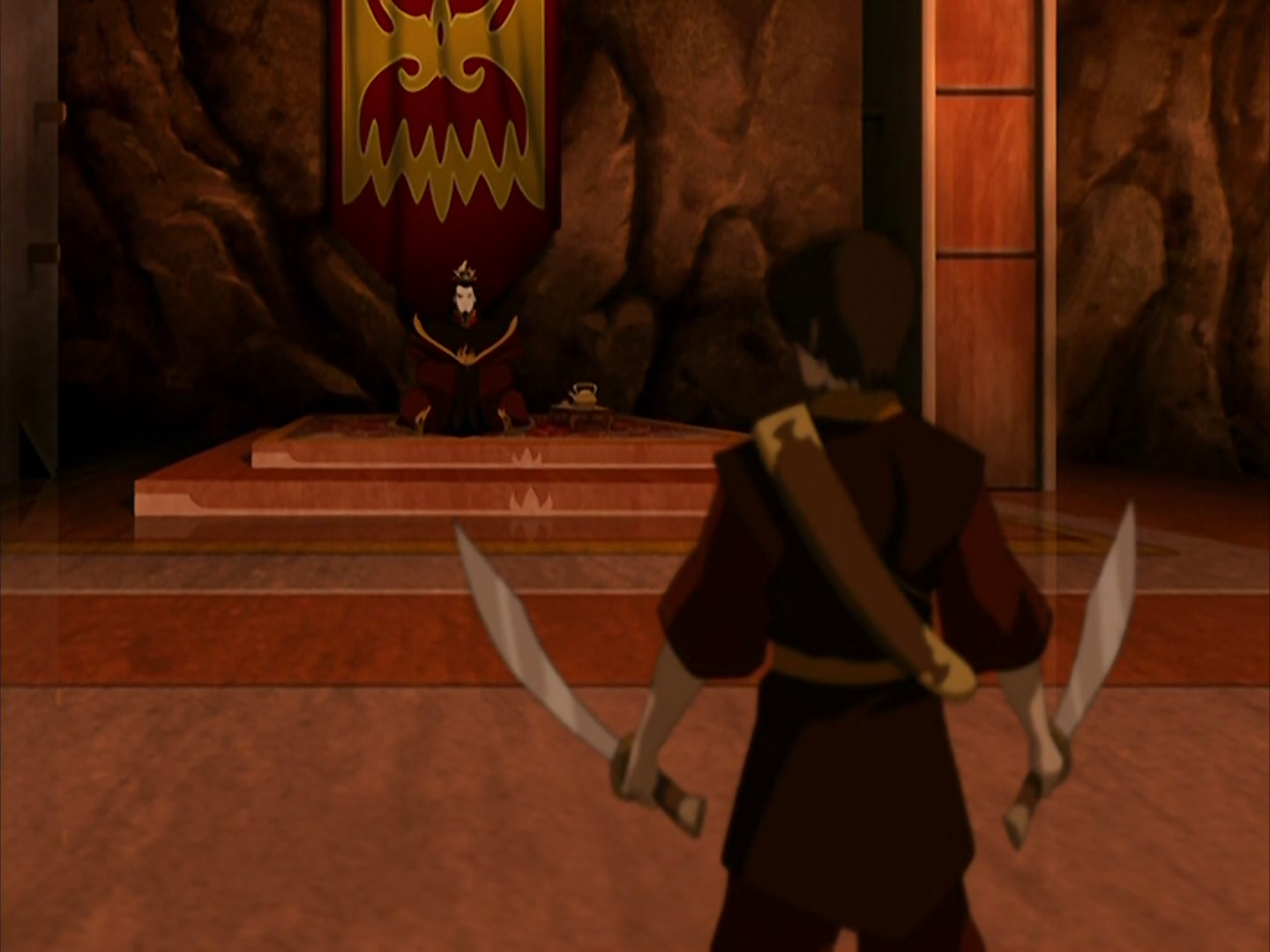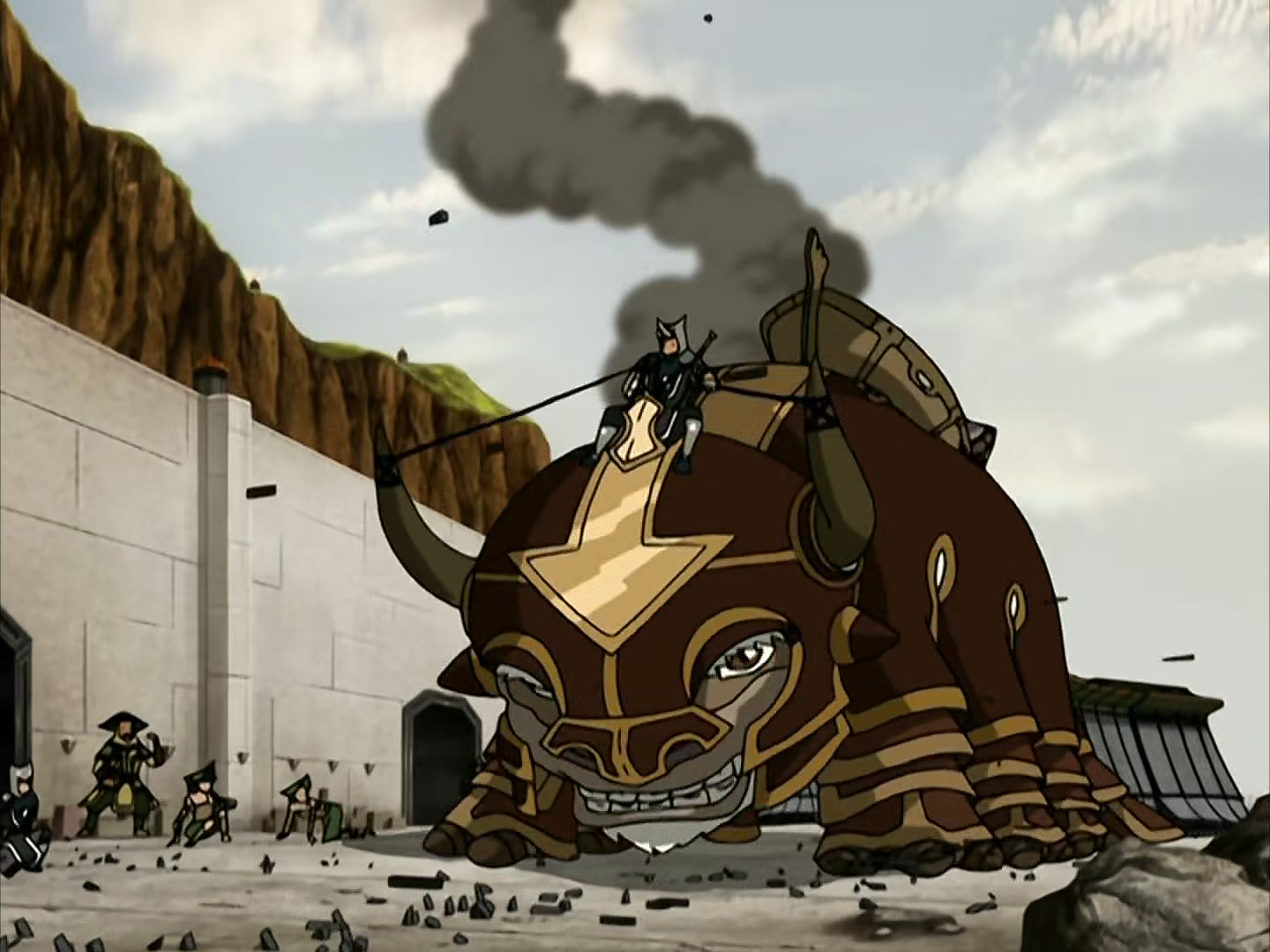Avatar: The Last Airbender: "Chapter Ten: The Day of Black Sun, Part 1: The Invasion" and "Chapter Eleven: The Day of Black Sun, Part 2: The Eclipse"
In which it's too early for the series to end

(This is the 21st installment of my weekly recaps of Avatar: The Last Airbender, the Nickelodeon animated series that ran from 2005 to 2008 to much critical acclaim. I’ve never seen it! These recaps are only available to paid subscribers.)
- “Chapter Ten: The Day of Black Sun, Part 1: The Invasion” (originally aired November 30, 2007)
- “Chapter Eleven: The Day of Black Sun, Part 2: The Eclipse” (originally aired November 30, 2007)

"The Day of Black Sun" two-parter is an artful dodge. It can't bring the series to a close, and it knows that you know it can't bring the series to a close. But it also owes you a story about what happens when the eclipse hits, so it does its very best to make all of the action feel like a series finale. It more or less wildly succeeds, too.
The episode this two-parter most reminds me of is a very rough contemporary: Battlestar Galactica's final midseason finale, "Revelations," which aired just over six months after this episode aired. (They were almost being conceptualized concurrently. There must have been something in the air.) Like "Black Sun," "Revelations" attempts to wrap up the main story of the show in a way that could conceivably function as a series finale. And like "Black Sun," "Revelations" ends on a moment of supreme despair. The fleet, having spent all series trying to find Earth, discovers that the planet is a radioactive wasteland. (I just rewatched this sequence, and it's one of my favorite shots in TV history, I think. Just look at it!)
"Black Sun" doesn't go quite that far into the darkness, but it somehow finds a way to make Aang and friends getting outsmarted by the Fire Nation yet again compelling. In fact, this is maybe my favorite example of the characters failing to stop Azula and Ozai yet, because they have a great plan, and Azula's plan is just better. Whatever intel she had, she has used it spectacularly.
Here's another thing "Black Sun" and "Revelations" have in common: Both episodes find ways to bring about long-teased alliances and make them realities. When the Cylons and humans finally start working together, or when Zuko finally stands up to his father, it feels momentous enough that both shows acquire a real sense that things are finally moving toward an ending. These choices break the status quo. Just not too much.
Lots and lots of serialized shows do episodes like this in their final seasons. These episodes tease the end arriving sooner than we'd expect, but they also understand that the audience knows how both stories and episode counts work, which means the potential for false drama surrounds viewers at all times. You can't really tease, say, Aang dying because we know Aang's not going to die until the finale.
But you also kind of have to do this episode to truly push the heroes to their lowest possible moment, while also providing a hint as to how our friends will find their way out of this predicament ultimately. By the time "Black Sun" is over, the resistance to the Fire Nation is down to just a handful of kids. Granted, one of those kids is the Avatar, but even with that accounted for, the odds seem gargantuan. Yet the last shot of the episode is Zuko pursuing Team Avatar through the sky. Things seem grim; here comes hope, hot on despair's heels.
Obviously, I am watching this series as an adult, and I know the full details of how many episodes of the show were produced. I would guess that a tween watching these episodes in 2007 wouldn't be as savvy about TV production schedules. But I do think those kids would likely know that, say, Aang's life wasn't truly in danger. That potential for false drama makes the episodes' biggest moments land all the more, because we're expecting the two-parter to pull at least some of its punches.
But "Black Sun" is also a tremendously successful hour in terms of character writing. Every single one of the major players gets a moment to shine (though Katara, arguably, doesn't get anywhere near enough to do), and the choices they make will clearly reverberate going forward.
The most obvious character choice with major repercussions is that of Zuko, obviously. Zuko's argument with his father is one of the better scenes of the series so far, and it's especially impressive just how much it sort of says exactly what you're supposed to be feeling in every moment without viewers losing interest. Avatar is not a series that particularly cares about subtext. If a scene has subtext, great. If it doesn't, also great. That quality doesn't always work for me, but in an episode with as much pseudo-Shakespearean angst as this one, it's welcome. Zuko and Ozai don't need subtext, because they would just be shouting the text angrily at each other, which is what they ultimately do. And Zuko uses the lightning trick Iroh taught him!
No other character moments are quite as momentous as that one, but Sokka stepping in to take the place of his father, the various parental figures surrendering so their kids can escape, Iroh's cell sitting empty, and Aang shaving off his hair to reveal his bald head and arrow all feel appropriately weighty.
I also really love what this two-parter does for Azula, who mostly runs away from people and taunts them, but "Black Sun" really underscores just how smart she is at getting people to do exactly what she wants by pushing their buttons in exactly the right way. Yeah, she's a powerful firebender, but she's also great at trash talk. And sometimes, you just want someone who's great at trash talk as your villain.
And as a final note, this episode just has some really cool images and creations. Jess, the 9-year-old who lives in my head whom you might remember from this review, kept watching these episodes and seeing, say, the caterpillar tank things, or Appa's armor, or the waterbender submarines, and exclaiming, "THIS IS SO COOL!" And those moments were cool. They didn't need to be anything else.
At its best, that's what Avatar does with aplomb: It connects on some primal level with the pieces of ourselves that are still at least partially childlike. So much of the best entertainment aimed at kids is often described as, "And it's just as enjoyable for adults!" implying that there is some sort of hidden treasure there that a grown-up can sniff out.
I think what is a more useful rubric is something along the lines of: The best entertainment aimed at kids connects, simultaneously, with the parts of kids that are already mature and the parts of adults that are still childlike. A great kids movie or book or show can make an adult feel like a kid, and vice versa. For all of the ways that I knew "Black Sun" was playing exactly into my expectations, my inner 9-year-old was still completely enthralled and absorbed. The show somehow never talked down to either of us, while still letting each of us experience the other's point-of-view. There's something magical about that, and it's a quality Avatar has in its very best episodes, which include these two.

Other thoughts I thought:
- The characters from the show's earlier episodes who pop up in this one feel almost randomly selected at times. There's a reason for, say, the inventor voiced by Odo to be there, but it's not as clear why the fighters Toph used to spar with would show up, other than it's fun to hear Mick Foley say, "THE BOULDER."
- It is always astonishing to me how few toys this show had, as it feels almost impossibly toy-friendly. Appa in his armor!!! APPA WITH A LITTLE AIR BUBBLE AROUND HIS HEAD????
- Azula getting Sokka to attack her by vague-threatening Suki (who Sokka can't even see) has big resonance with Star Lord getting mad at Thanos over Gamora in Infinity War, except I think this version was much better written and way more in character.
- Oh, hey, we learn that Zuko's mother was banished, not killed. I mean, that's what Fire Lord Ozai says, and we can clearly trust him, right? Right???!
- It's kind of funny how casually Aang reveals that his seventh chakra is just locked.
- Okay, yeah, my big complaint with these episodes is how little Katara has to do, to the degree that the story all but loses track of her for a while.
- I couldn't think of a better way to say this than: There's just some really cool bending stuff in these two episodes. The action sequences have really gotten top notch.
Next time: Zuko joins the main crew (I assume??) in "The Western Air Temple" and "The Firebending Masters."



